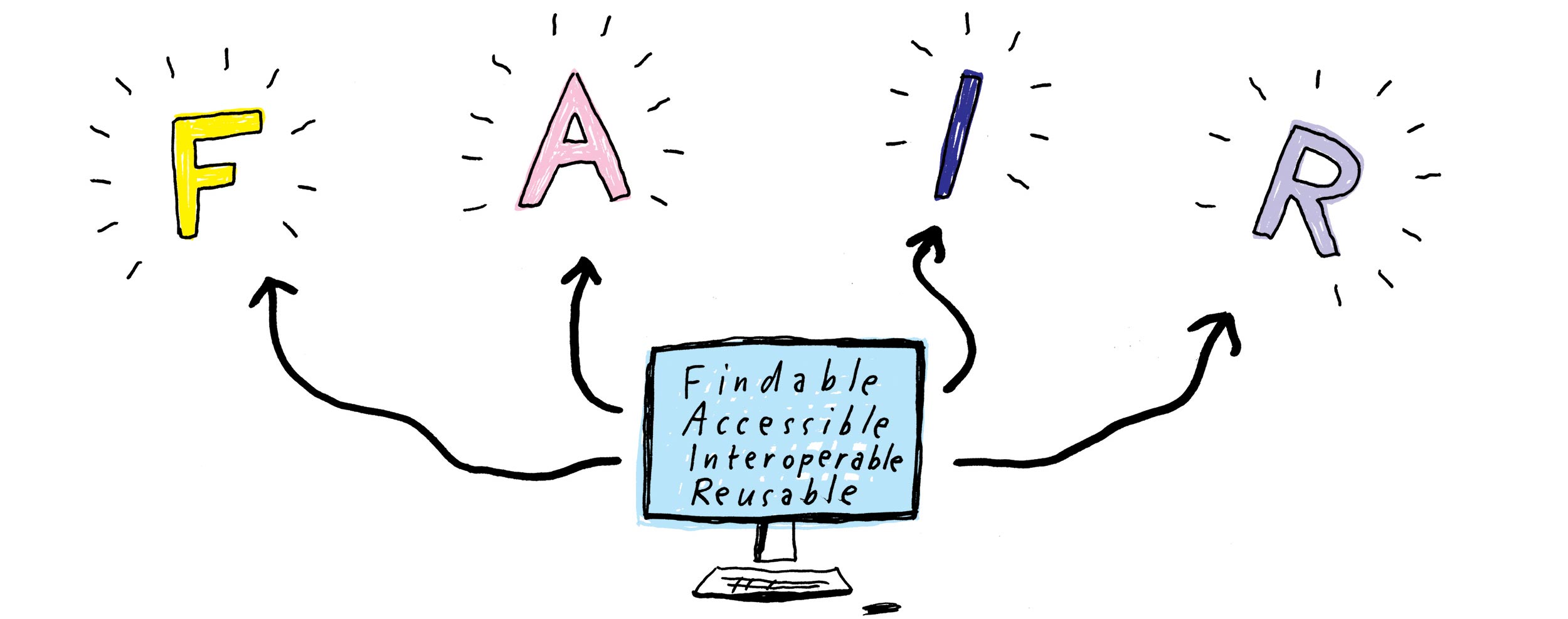The Fair Principles for research data
WORK SHEET 19

More and more funders require that researchers collating data observe the “FAIR” principles regarding research data and their re-use. Take a short Deep Dive into this topic.
Duration 60 til 120 min
A brief word upfront: the abbreviation FAIR describes the four criteria Findable, Accessible, Interoperable and Re-usable. Research data must be processed in such ways that humans and machines can find, access, link and re-use them. The first and foremost requirement for producers of research data is the need to create metadata that can unfold their full effect, for instance on the Semantic Web.
Your tasks:
Brush up on metadata standards, so that a mapping between different kinds of metadata is possible. Many urgent problems of our time can only be solved with interdisciplinary work (e.g. “Will humankind still be able to eat fish fifty years from now?”).
Clearly state the conditions for re-using your data (e.g. under which Creative Commons licence).
Describe your data with metadata.
Start with administrative metadata (author, origin of all data etc.)
Add subject-specific metadata (describe the contents of the data)
If you add a Digital Object Identifier (DOI) to your data you can increase the findability (and of course the probability of citation).
Checklist:
- Check metadata standards
- Document conditions for re-use
- Describe dataset
- Assign DOI
Congratulations!
Date: September 2020
Questions, comments and notes are welcome at open-science@zbw.eu
